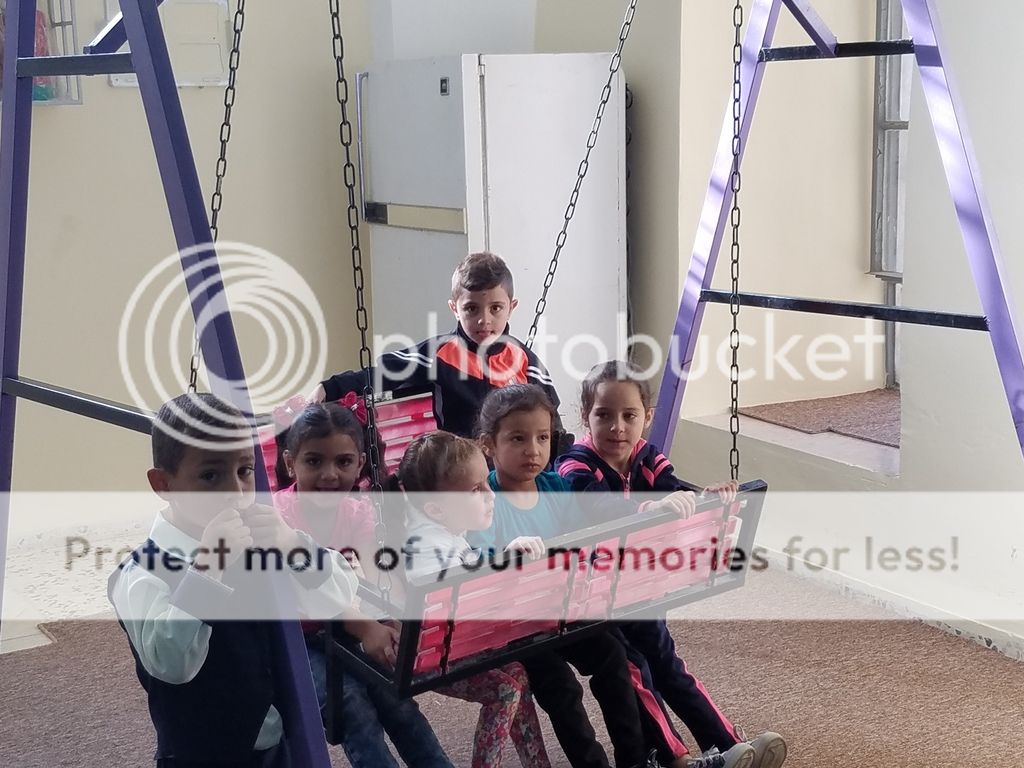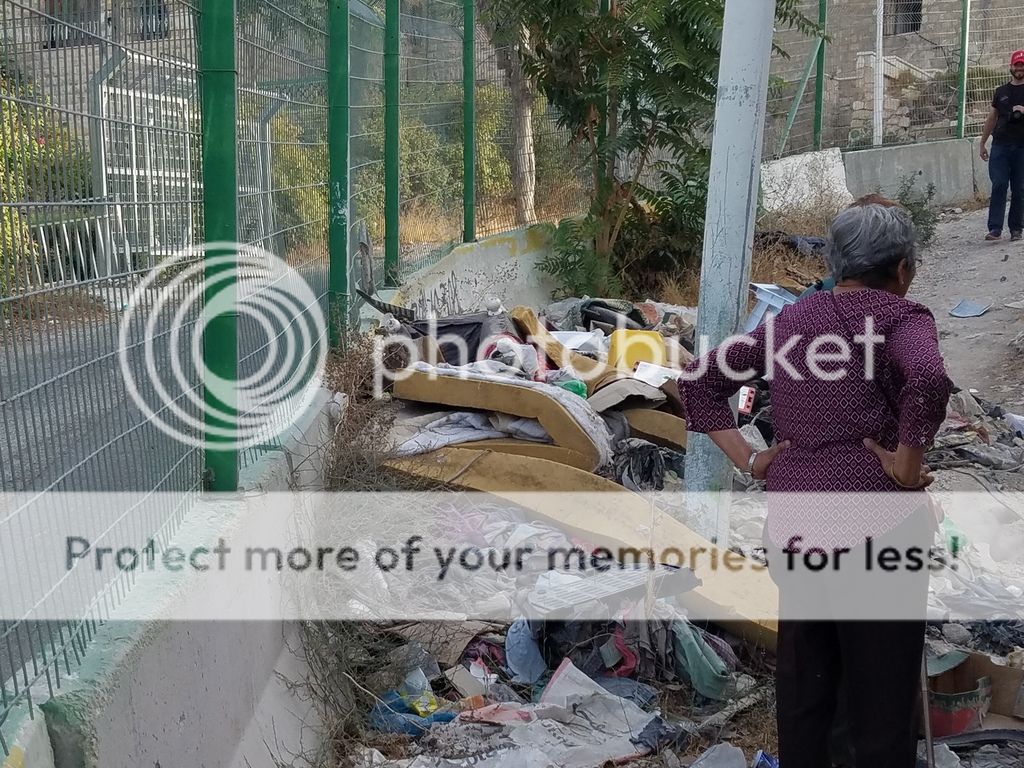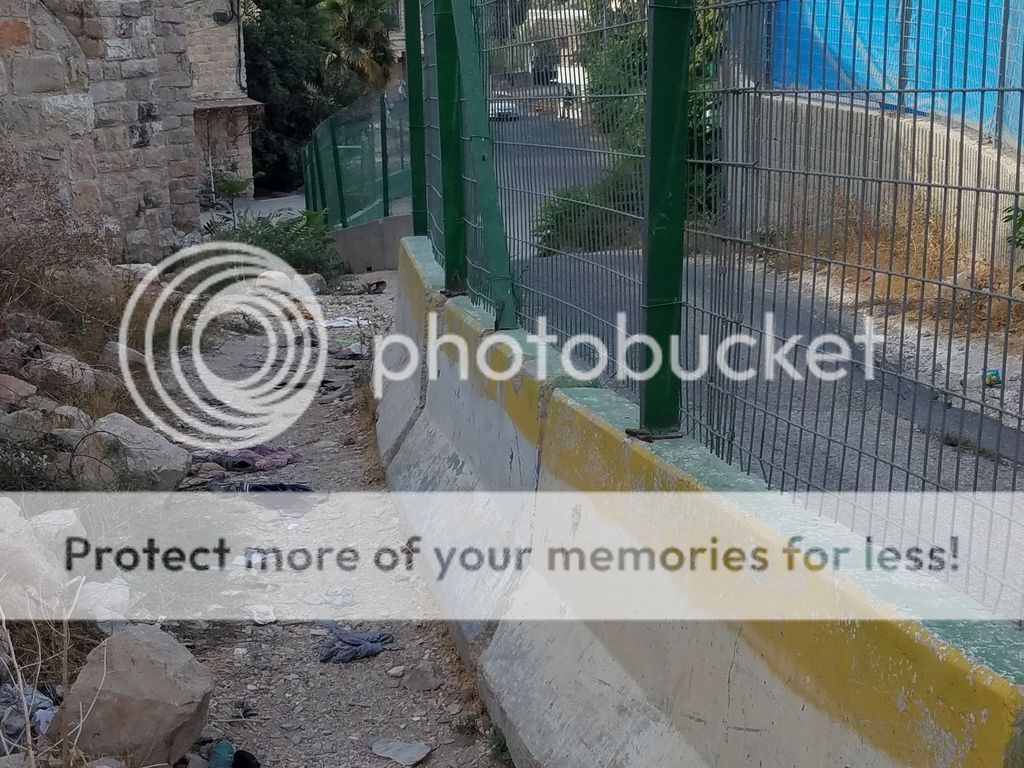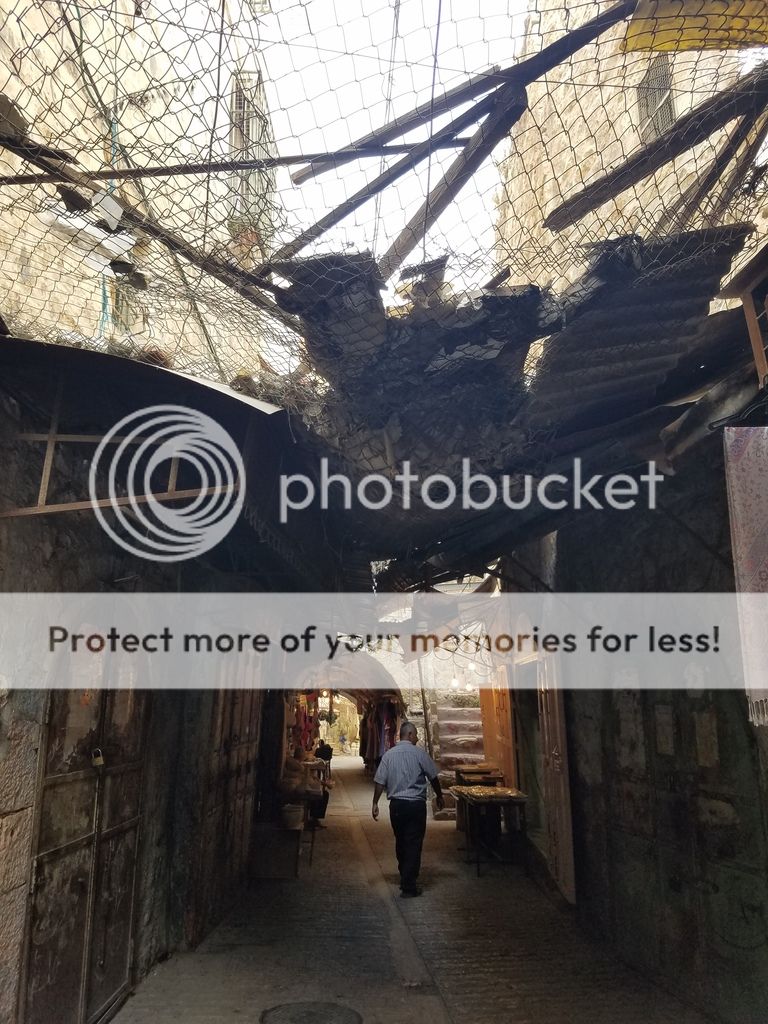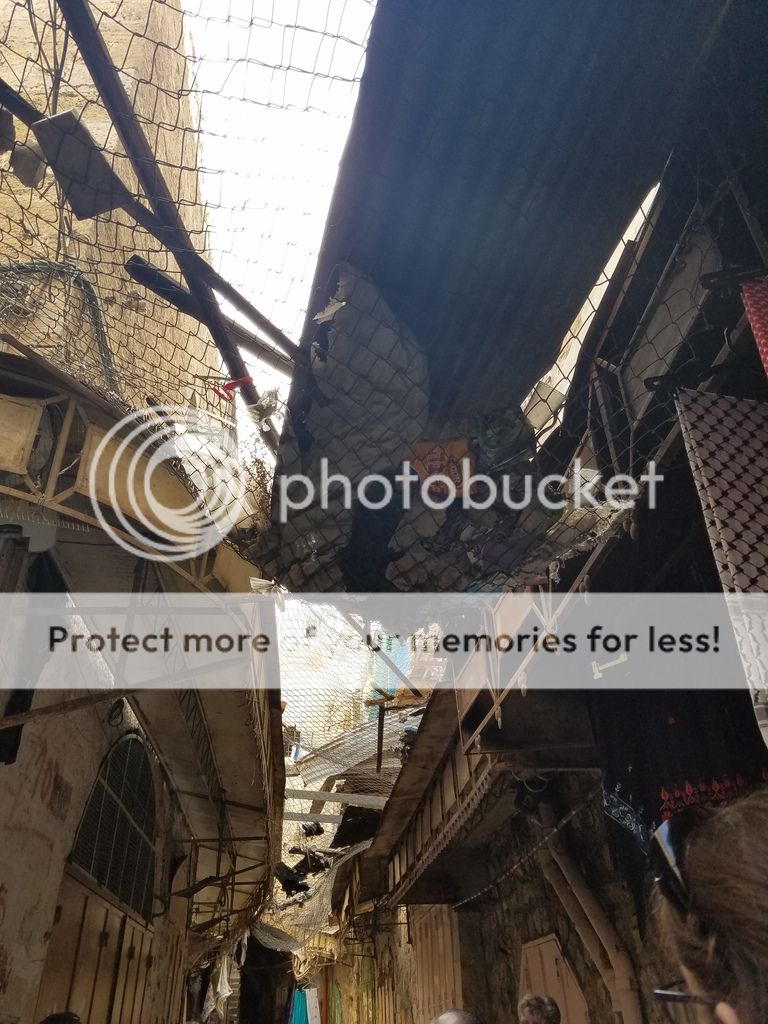The trip to the Jordan Valley was eye-opening and heartbreaking. This is the area where you can find Jericho and the Dead Sea. We visited a Palestinian village and an Israeli settlement while in the area. Our guide was an Israeli man that was involved with the Israeli Committee Against Home Demolitions (ICAHD).
Some notes on the area:
This is a region that, for thousands of years, has been fed by natural springs. Our guide was telling us that in other areas of the West Bank, when the Israelis want to build another illegal settlement, they will demolish the existing Palestinian village and build on that site. In the Jordan Valley, however, their method is far more disturbing. Most of these villages are built on the springs. Instead of going in and kicking out the Palestinians, as they do elsewhere, they will actually build the settlement next to the Palestinian village. Then they will drill down into the water table and pump out the water that feeds the springs. This has caused those springs to dry up.
Here is one of the pumping stations that our ICAHD guide called "evidence of ethnic cleansing":
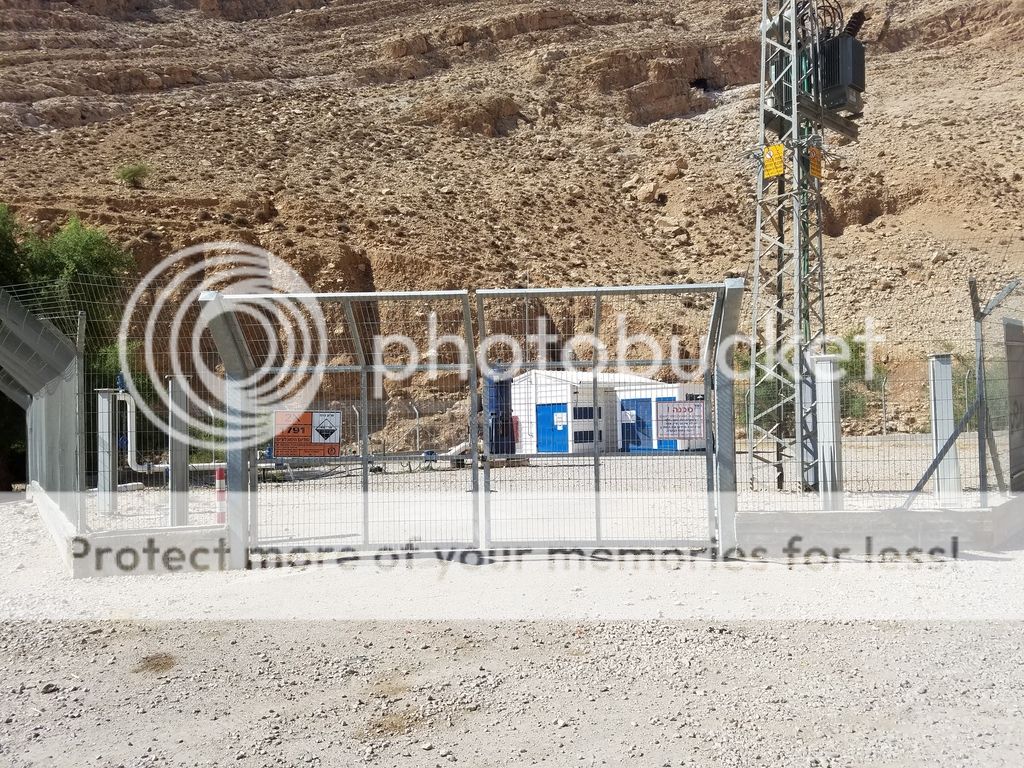
This is the settlement of Fatsa'el. See how lush and green everything is. This is a result of pumping out the water and using it solely for the settlement and it's date farms:
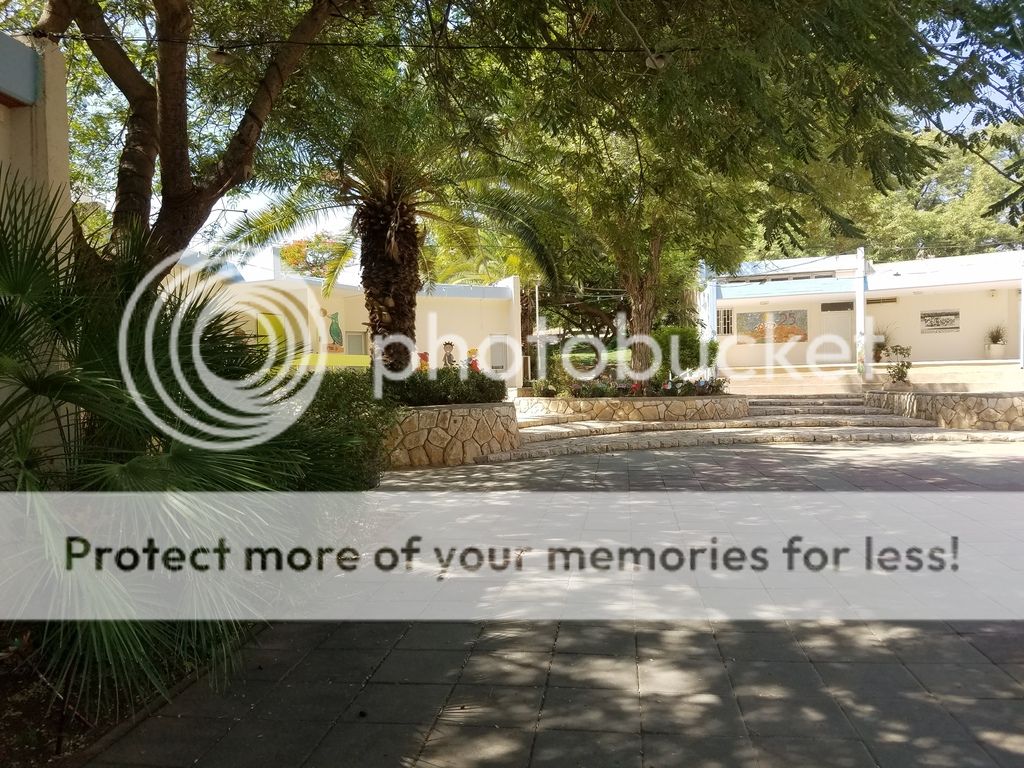
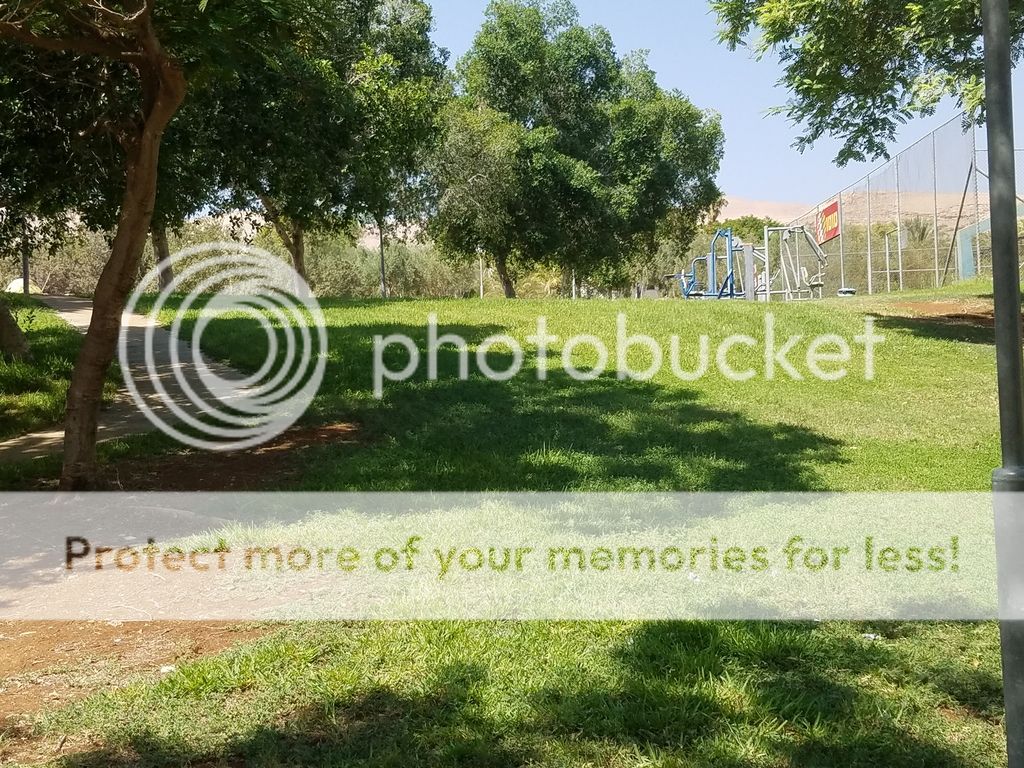
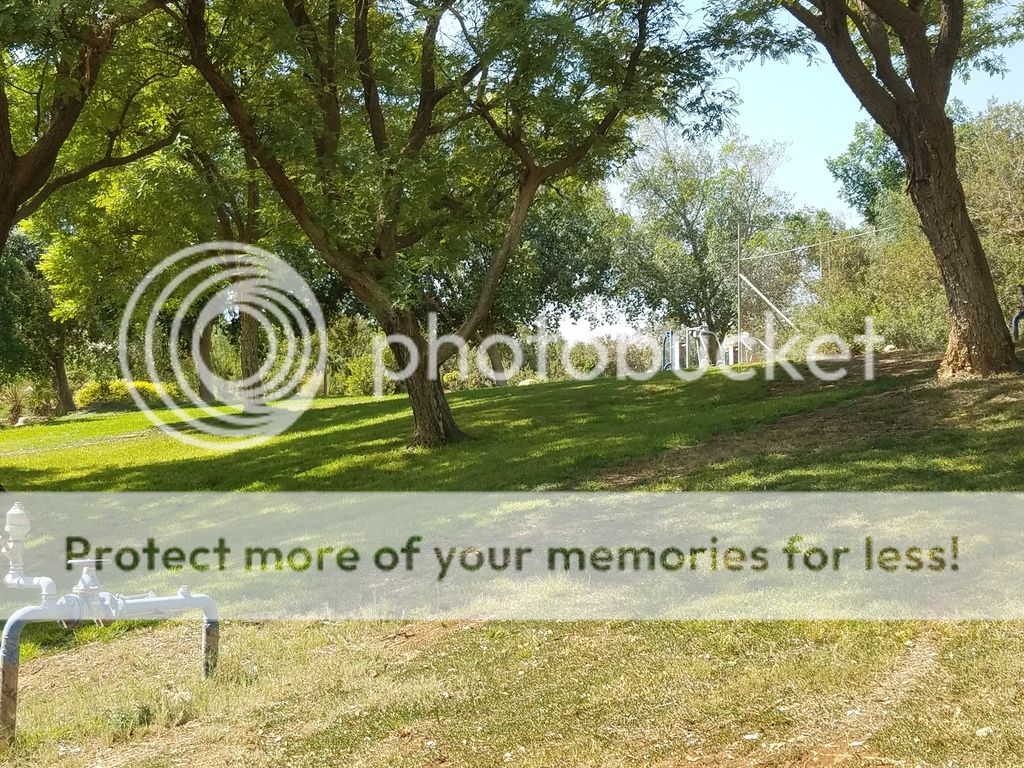
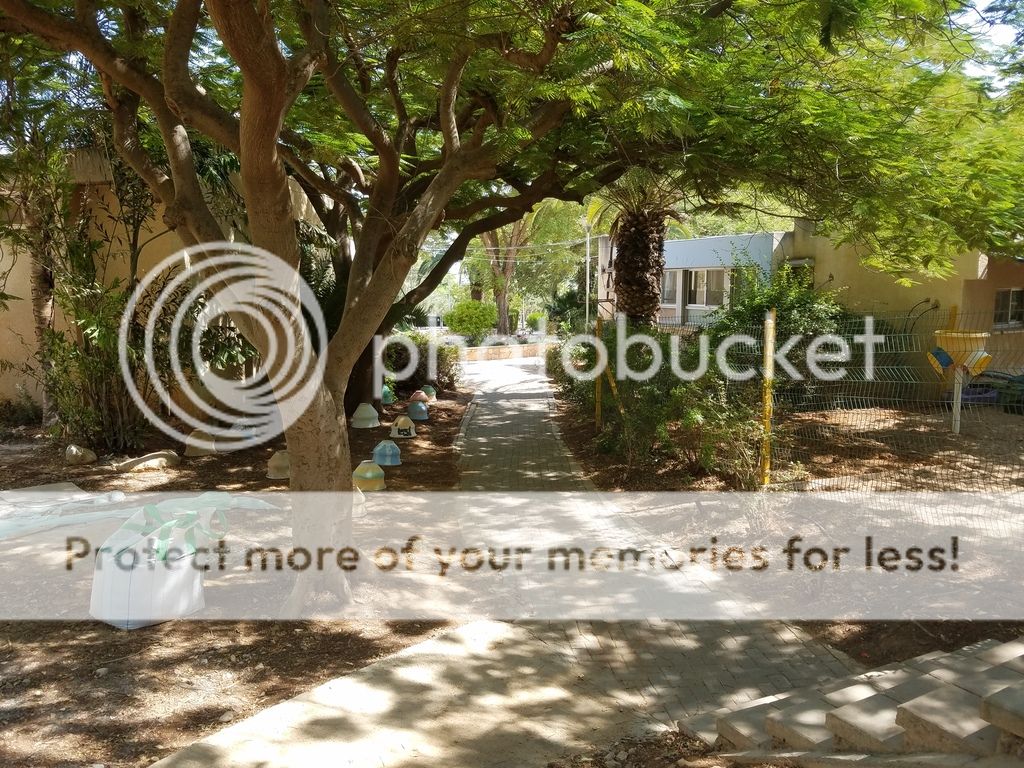
This is the Palestinian village of Fasayil that is literally right next door:
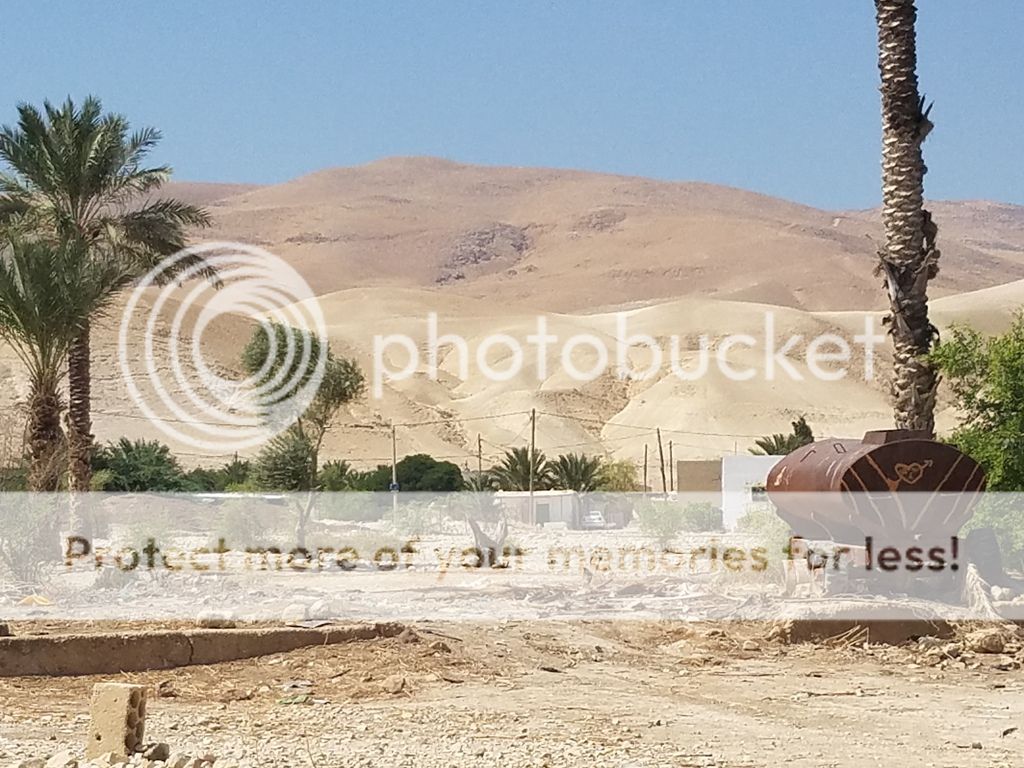
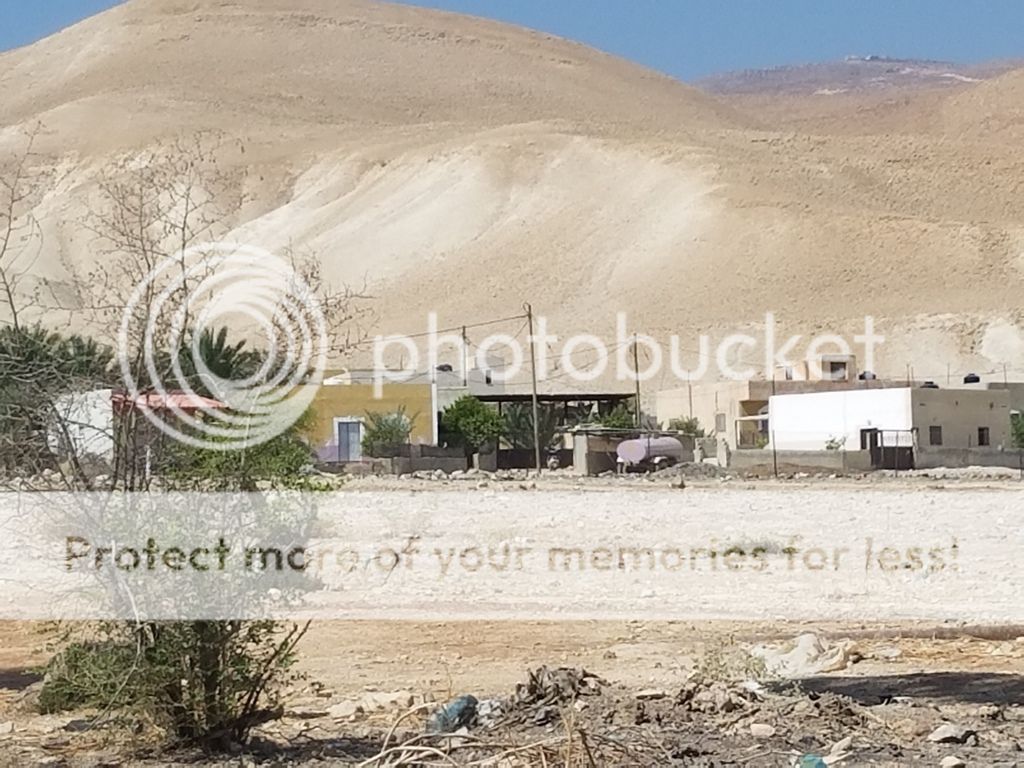
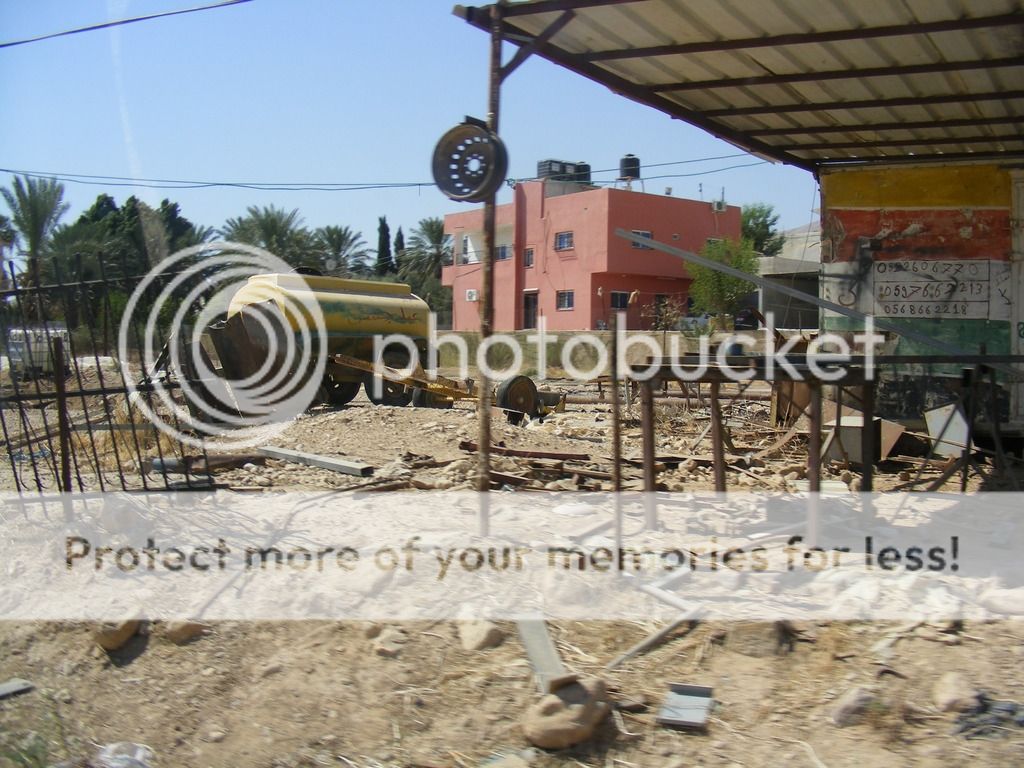
Now, since the Palestinian's source of water, which is primarily the springs, has been diverted to the settlements, Palestinian agriculture in the region has effectively died off. There are vast date farms in the region though. These are run by the settlements, however. For those that aren't too familiar with date trees, as was my case, date trees require a tremendous amount of water. For a region where water is already scarce, these settlement dates only exacerbate the problem.
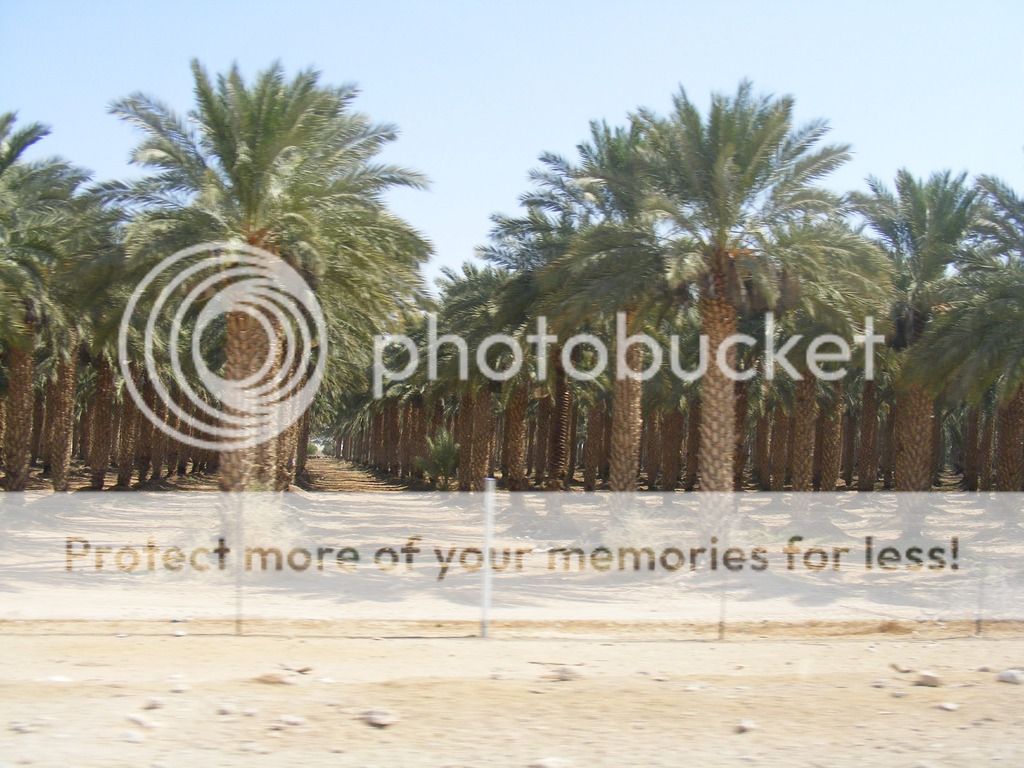
These date farms primarily employ Palestinians and Thai workers. Since the Thai workers come over as part of governmental agreements, they are typically paid around the standard minimum wage in Israel, which is roughly 250 shekels/day. Our guide also said that the standard minimum age of a worker is usually no lower than 14. But, when it comes to the Palestinian workers, they are paid an average of 60-80 shekels/day, and children as young as 8 are being employed on these farms.
Here you can see the more of the effects of the settlements pumping out the water for their own use:
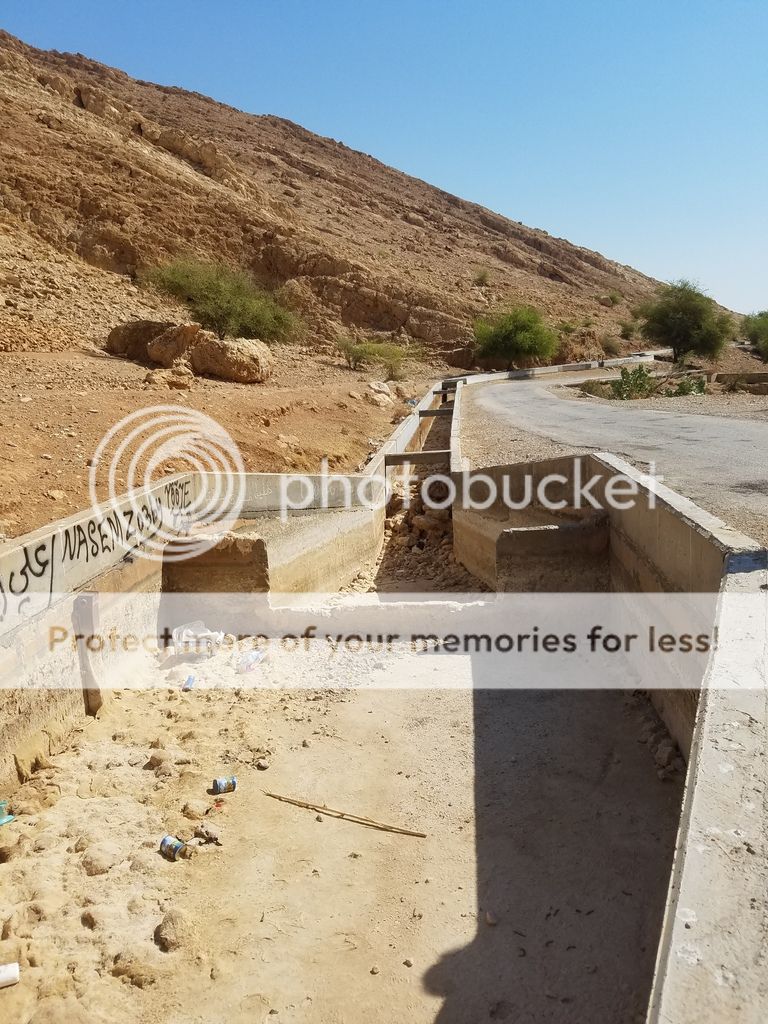
These channels used to be full of water 24/7/365. When we asked the goat herder (not sure what they are actually called) if he remembers the last time he saw water in there, he said around April. When asked when was the last time they were always full, and he said "oh, that was in the days of our grandfathers". As already mentioned, this has resulted in killing Palestinian agriculture, so many have shifted to goat herding.
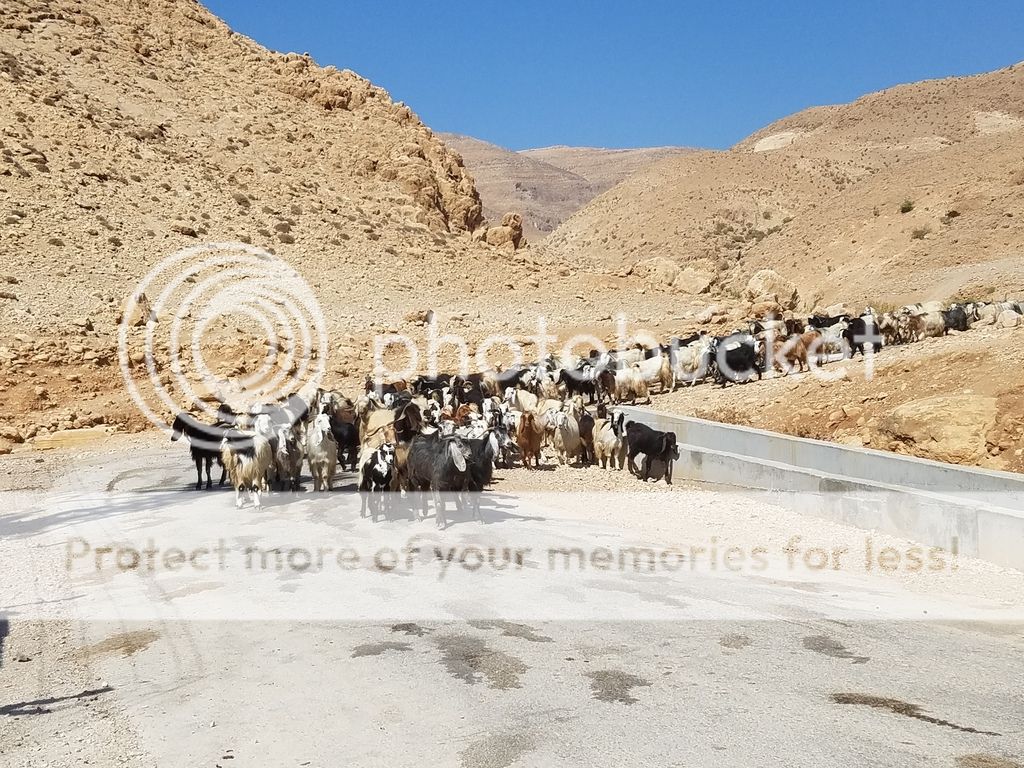
One of the major problems they are now running into is with regards to grazing land. Obviously, this is an area with little vegetation, so grazing lands are vitally important. What the IDF has begun doing is to declare grazing areas a "firing zone", forcing the Palestinians out of that land. Another tactic used by the IDF is to declare the grazing lands a "nature reserve". The telling thing about that, however, is that when the Palestinians continue to graze the land, the IDF will come in and burn all the vegetation. That is not a "nature reserve" then.
You can see water tanks in some of the above pictures of the Palestinian village. Because their water has been stolen, they now have to have it shipped in in those tanks. This has created an enormous cost burden for the Palestinians that remain there. Water has become approximately 1/3 of their living expenses. It is costly to bring water in because road closures by the IDF increase the distance these water trucks must go, which drives up the cost. But, that's not been sufficient for the Israeli side. The IDF has, in the past couple years, begun to either seize the water trucks or to shoot holes into them.
One may ask why don't the Palestinians just drill into the water table as well. Under Israeli law, Israelis can drill down up to 800m for water, but Palestinians can only drill down to 150m. Since this is also the area we find the Dead Sea, the water at 150m contains large amounts of salt.
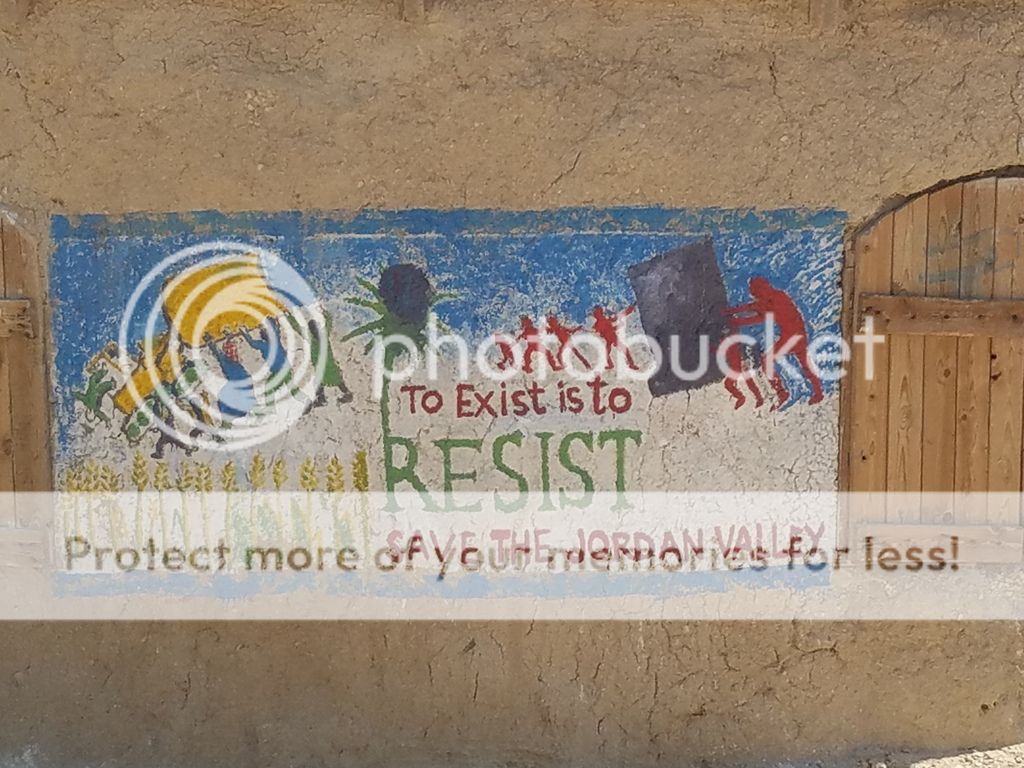
On one positive note, the BDS movement has been very successful in putting a dent in the settlement date farms. The Jordan Valley settlement farms have seen the biggest impact of BDS, as many European businesses will no longer buy settlement dates. The settlements have tried to get around this by channeling them through 3rd parties so as to get the settlement "label" removed from their products. Now, unlike most of the settlers in other areas of the West Bank, Jordan Valley settlers tend to not be Orthodox. These illegal settlements are heavily subsidized by the Israeli government, so there are a lot of financial incentives to move to them. Jordan Valley settlers tend to fall into the "financial incentives" group of settlers, and many honestly believe that the date farms are good for the Palestinians. They feel victimized by BDS because their rationale is "what will these people do for work if we get rid of the settlements"? Of course, this is flawed thinking and was similarly used in apartheid South Africa to justify their system.
Home demolitions are another major issue in the West Bank, and specifically the Jordan Valley. There were 70 home demolitions in February alone. Abu Sakr, a Jordan Valley Solidarity activist, has had his home demolished 8 times. These demolitions occur because these homes, schools, medical clinics (and yes, they also demolish schools and clinics) are built without permits. The catch, though, is that it is virtually impossible for a Palestinian to receive a building permit. This is seen throughout the entire West Bank.
Another issue in this region is the Hamra checkpoint. This is a checkpoint south of Nablus. One could simply go around the checkpoint by driving several hours out of the way. The purpose of this checkpoint is simply to harass. It is not uncommon for women to give birth at the checkpoint, as even women in labor will be held at the checkpoint for hours at a time. Our ICAHD guide had asked a military commander at the checkpoint one time about what the policy is regarding when the checkpoint is open and who can pass through. The military commanders answer is telling and reflective of the overall mindset we saw in our two weeks: "We have no official policy, and it's effective."
The Jordan Valley was heartbreaking because what we witnessed was a concerted effort to drive out the inhabitants by making their lives simply unlivable. It is why the population has plummeted in the area. Our ICAHD guide did not hide his thoughts on it. This man, an Israeli, bluntly calls it "ethnic cleansing". He said they are brilliant with how they do it because without body bags, people won't pay attention to what's happening. But, whether it's stealing the water and drying up thousand year old springs, burning grazing lands the IDF designates as a "nature reserve", unnecessary checkpoints, or destroying water tanks, the intent of the Israeli government here is crystal clear.
If you would like to know more about the work being done by Jordan Valley Solidarity, a nonviolent peace organization, feel free to check out their website: http://jordanvalleysolidarity.org/
Some notes on the area:
- The Jordan Valley makes up approximately 1/3 of the West Bank. In 1967, the population was approximately 320,000. Now, the population sits around 56,000, with the bulk of those residing in Jericho.
- Jordan Valley used to make up 20% of the West Bank population. Now just 2%.
- 10,000 settlers consume 6.5 times more water than the 56,000 Palestinians
- 95% of the Jordan Valley is classified Area C, which is under full Israeli military control. Area A = Palestinian control. Area B = joint Israeli/Palestinian control
This is a region that, for thousands of years, has been fed by natural springs. Our guide was telling us that in other areas of the West Bank, when the Israelis want to build another illegal settlement, they will demolish the existing Palestinian village and build on that site. In the Jordan Valley, however, their method is far more disturbing. Most of these villages are built on the springs. Instead of going in and kicking out the Palestinians, as they do elsewhere, they will actually build the settlement next to the Palestinian village. Then they will drill down into the water table and pump out the water that feeds the springs. This has caused those springs to dry up.
Here is one of the pumping stations that our ICAHD guide called "evidence of ethnic cleansing":

This is the settlement of Fatsa'el. See how lush and green everything is. This is a result of pumping out the water and using it solely for the settlement and it's date farms:




This is the Palestinian village of Fasayil that is literally right next door:



Now, since the Palestinian's source of water, which is primarily the springs, has been diverted to the settlements, Palestinian agriculture in the region has effectively died off. There are vast date farms in the region though. These are run by the settlements, however. For those that aren't too familiar with date trees, as was my case, date trees require a tremendous amount of water. For a region where water is already scarce, these settlement dates only exacerbate the problem.

These date farms primarily employ Palestinians and Thai workers. Since the Thai workers come over as part of governmental agreements, they are typically paid around the standard minimum wage in Israel, which is roughly 250 shekels/day. Our guide also said that the standard minimum age of a worker is usually no lower than 14. But, when it comes to the Palestinian workers, they are paid an average of 60-80 shekels/day, and children as young as 8 are being employed on these farms.
Here you can see the more of the effects of the settlements pumping out the water for their own use:

These channels used to be full of water 24/7/365. When we asked the goat herder (not sure what they are actually called) if he remembers the last time he saw water in there, he said around April. When asked when was the last time they were always full, and he said "oh, that was in the days of our grandfathers". As already mentioned, this has resulted in killing Palestinian agriculture, so many have shifted to goat herding.

One of the major problems they are now running into is with regards to grazing land. Obviously, this is an area with little vegetation, so grazing lands are vitally important. What the IDF has begun doing is to declare grazing areas a "firing zone", forcing the Palestinians out of that land. Another tactic used by the IDF is to declare the grazing lands a "nature reserve". The telling thing about that, however, is that when the Palestinians continue to graze the land, the IDF will come in and burn all the vegetation. That is not a "nature reserve" then.
You can see water tanks in some of the above pictures of the Palestinian village. Because their water has been stolen, they now have to have it shipped in in those tanks. This has created an enormous cost burden for the Palestinians that remain there. Water has become approximately 1/3 of their living expenses. It is costly to bring water in because road closures by the IDF increase the distance these water trucks must go, which drives up the cost. But, that's not been sufficient for the Israeli side. The IDF has, in the past couple years, begun to either seize the water trucks or to shoot holes into them.
One may ask why don't the Palestinians just drill into the water table as well. Under Israeli law, Israelis can drill down up to 800m for water, but Palestinians can only drill down to 150m. Since this is also the area we find the Dead Sea, the water at 150m contains large amounts of salt.

On one positive note, the BDS movement has been very successful in putting a dent in the settlement date farms. The Jordan Valley settlement farms have seen the biggest impact of BDS, as many European businesses will no longer buy settlement dates. The settlements have tried to get around this by channeling them through 3rd parties so as to get the settlement "label" removed from their products. Now, unlike most of the settlers in other areas of the West Bank, Jordan Valley settlers tend to not be Orthodox. These illegal settlements are heavily subsidized by the Israeli government, so there are a lot of financial incentives to move to them. Jordan Valley settlers tend to fall into the "financial incentives" group of settlers, and many honestly believe that the date farms are good for the Palestinians. They feel victimized by BDS because their rationale is "what will these people do for work if we get rid of the settlements"? Of course, this is flawed thinking and was similarly used in apartheid South Africa to justify their system.
Home demolitions are another major issue in the West Bank, and specifically the Jordan Valley. There were 70 home demolitions in February alone. Abu Sakr, a Jordan Valley Solidarity activist, has had his home demolished 8 times. These demolitions occur because these homes, schools, medical clinics (and yes, they also demolish schools and clinics) are built without permits. The catch, though, is that it is virtually impossible for a Palestinian to receive a building permit. This is seen throughout the entire West Bank.
Another issue in this region is the Hamra checkpoint. This is a checkpoint south of Nablus. One could simply go around the checkpoint by driving several hours out of the way. The purpose of this checkpoint is simply to harass. It is not uncommon for women to give birth at the checkpoint, as even women in labor will be held at the checkpoint for hours at a time. Our ICAHD guide had asked a military commander at the checkpoint one time about what the policy is regarding when the checkpoint is open and who can pass through. The military commanders answer is telling and reflective of the overall mindset we saw in our two weeks: "We have no official policy, and it's effective."
The Jordan Valley was heartbreaking because what we witnessed was a concerted effort to drive out the inhabitants by making their lives simply unlivable. It is why the population has plummeted in the area. Our ICAHD guide did not hide his thoughts on it. This man, an Israeli, bluntly calls it "ethnic cleansing". He said they are brilliant with how they do it because without body bags, people won't pay attention to what's happening. But, whether it's stealing the water and drying up thousand year old springs, burning grazing lands the IDF designates as a "nature reserve", unnecessary checkpoints, or destroying water tanks, the intent of the Israeli government here is crystal clear.
If you would like to know more about the work being done by Jordan Valley Solidarity, a nonviolent peace organization, feel free to check out their website: http://jordanvalleysolidarity.org/


